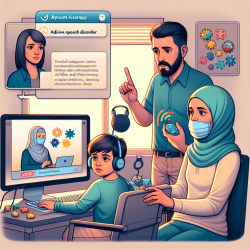Understanding EV71 and HFMD
EV71 is a non-enveloped virus highly resistant to environmental conditions and mild disinfectants. It primarily spreads through the fecal-oral route but can also be transmitted via respiratory secretions and skin lesions. HFMD, commonly a benign illness, has shown severe complications due to EV71, including brainstem encephalitis and cardiopulmonary failure, particularly in children under six months of age.Key Findings and Implications for Practitioners
The study underscores the importance of early identification and intervention. Here are some actionable takeaways for practitioners:- Risk Identification: High fever, fever lasting more than three days, and lethargy are indicators of potential central nervous system involvement. Practitioners should monitor these symptoms closely to provide timely interventions.
- Severe Case Management: For severe cases, interventions such as antipyretics, sedatives, intravenous immunoglobulin (IVIG), and milrinone can be crucial. The study highlights the promising potential of magnesium sulfate, currently under investigation, to stabilize cardiovascular function and reduce autonomic dysfunction.
- Preventive Measures: Health education focusing on personal hygiene and sanitation is vital. Regular hand washing, proper disposal of soiled diapers, and disinfection of contaminated surfaces can significantly reduce transmission rates.
Encouraging Further Research
The article emphasizes the need for continuous monitoring and research to better understand the virus's evolution and improve outbreak management. Practitioners are encouraged to:- Participate in Multicenter Trials: Engage in studies evaluating new therapeutic interventions like magnesium sulfate and assess their effectiveness in diverse settings.
- Contribute to Surveillance Efforts: Support regional clinical and laboratory networks to harmonize diagnosis, treatment, and management protocols across countries.
- Focus on Long-term Outcomes: Investigate the long-term neurodevelopmental and cognitive impacts on children affected by severe HFMD to understand the full spectrum of the disease's burden.
Conclusion
By implementing the insights from this research, practitioners can significantly improve the management of EV71-related HFMD and contribute to better health outcomes for children. The collaboration in research and adherence to evidence-based practices are paramount in combating this public health challenge.To read the original research paper, please follow this link: Enterovirus 71 related severe hand, foot and mouth disease outbreaks in South-East Asia: current situation and ongoing challenges.










